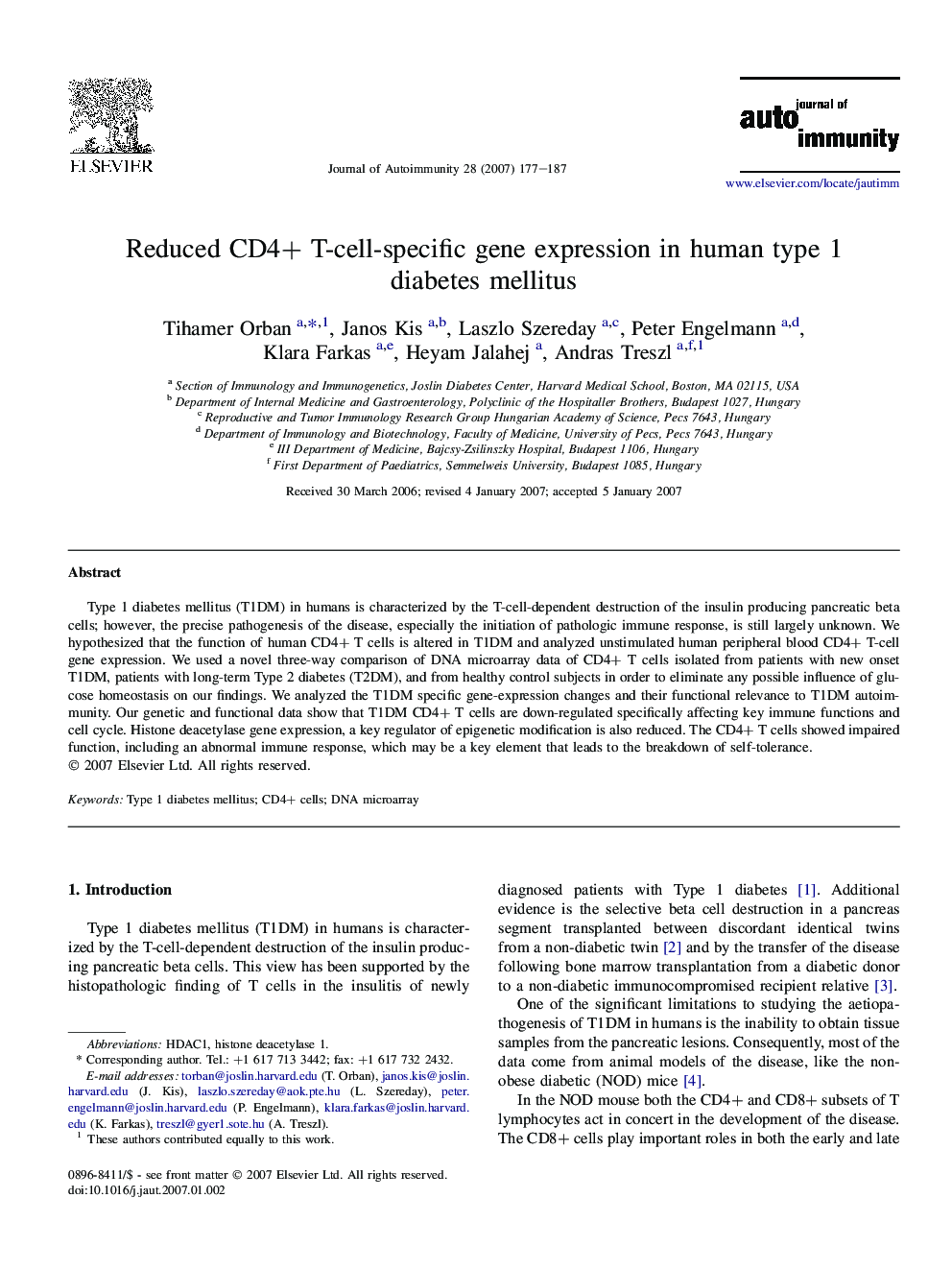| Article ID | Journal | Published Year | Pages | File Type |
|---|---|---|---|---|
| 3368489 | Journal of Autoimmunity | 2007 | 11 Pages |
Type 1 diabetes mellitus (T1DM) in humans is characterized by the T-cell-dependent destruction of the insulin producing pancreatic beta cells; however, the precise pathogenesis of the disease, especially the initiation of pathologic immune response, is still largely unknown. We hypothesized that the function of human CD4+ T cells is altered in T1DM and analyzed unstimulated human peripheral blood CD4+ T-cell gene expression. We used a novel three-way comparison of DNA microarray data of CD4+ T cells isolated from patients with new onset T1DM, patients with long-term Type 2 diabetes (T2DM), and from healthy control subjects in order to eliminate any possible influence of glucose homeostasis on our findings. We analyzed the T1DM specific gene-expression changes and their functional relevance to T1DM autoimmunity. Our genetic and functional data show that T1DM CD4+ T cells are down-regulated specifically affecting key immune functions and cell cycle. Histone deacetylase gene expression, a key regulator of epigenetic modification is also reduced. The CD4+ T cells showed impaired function, including an abnormal immune response, which may be a key element that leads to the breakdown of self-tolerance.
